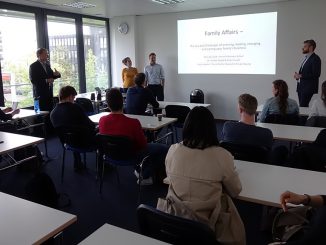
An analysis of the Introduction of a New Value and Control System at ZF Friedrichshafen Following the Takeover of TRW Automotive in the Post-Merger Phase
The number of business mergers and takeovers, also known as Mergers & Acquisitions (M&A), has been constantly growing since the start of the 1990s. They increasingly continue to characterize the business landscape and occupy an important role in our economy. In the course of global megatrends such as digitization, demographic change, urbanization, climate change and the constantly growing intensity of competition, businesses increasingly merge with one another, in which case this trend accelerates. The liberalization of regulations on mergers, the progression and deregulation of financial markets also play their part in contributing to the growing importance of business sales and purchases (Wirtz, 2016, p. 4).
Mergers take place within industries; however, they also take place across different industries and even across national boundaries. Above all, takeovers with strong intercultural character, such as Daimler-Chrysler, Vodafone-Mannesmann or currently Bayer-Monsanto create a lot of attention and headlines not only on the financial markets, but also in the media. Extremely high prices were often paid for such acquisitions, which can scarcely be explained using traditional evaluation methods (Zeit Online, 2016).
Evidence is provided in numerous papers that a large proportion of mergers and acquisitions fail. The success rate for M&As stands at merely 56 per cent (Wirtz, 2016, p. 5). The so-called “soft” factors are often not given enough attention in the context of the M&A process and their significance is also still often underestimated.
Almost 25 % of all M&As fail on the basis of poor integration (Strohmer 2001, p. 8). Most assessments are directed predominantly towards quantifiable material company values, so-called “hard” factors. The so-called “soft” factors such as communication, employees and culture are often neglected during integration, and in the post-merger phase all too often play a rather subordinate role.
Yet precisely these “soft” factors influence the extent of the success of a company. They provide the company with an identity. Factors such as business culture contain all the shared values and standards. They influence the behavior and attitude of all employees on the different levels of hierarchy and also characterize the company’s identity and appearance (Kobi & Wüthrich, 1990, p. 34). Thus in the end they also have a large effect on the success of the business (Berthel & Becker, 2003, p. 535).
Challenges of Cultural Integration During the Post-Merger Phase
On 15 May 2015, ZF Friedrichshafen AG took over the American automotive supplier TRW Automotive for 12.5 billion US dollars and is now facing the challenges of cultural integration in the post-merger phase. The goal is to harmonize both companies with their different business cultures. In order to achieve this, the company introduced the new ZF Management System and the ZF Charter at the start of 2017.
The aim of Verena Hüni‘s Master thesis was to discover what appearance the business culture of ZF Friedrichshafen AG should assume in future following the merger with TRW Automotive, and how to successfully shape this cultural change. Furthermore, the introduction of the new value and control system was to be analyzed. Three research questions were derived from this:
Research question 1: What does the target image of the corporate culture of ZF Friedrichshafen AG look like for the future?
Research question 2: What must change, in order that also the corporate culture changes in the post-merger phase following a takeover?
Research question 3: Is introducing a new control and value system the correct route to induce change?
The research questions this Master thesis is based on were answered with qualitative guided interviews with company executives. In particular, the importance of “soft” factors for successful cultural integration was highlighted. Valuable information could be collected from these interviews. Following the analysis and interpretation of the results, Verena Hüni developed five recommended actions for the company and elaborated these:
- Developing of a strong corporate vision
- Interactive workshops for implementing the desired corporate culture and the new systems
- Installation of an online platform
- “Job rotation” – a simplified routine for changing jobs within the company
- Individual target agreements and performance assessments of the employees
You can find a presentation with insights from Verena Hüni’s Master thesis here.
Sources:
- Berthel, J. & Becker, F. G. (2003). Personalmanagement. Grundzüge für Konzeptionen betrieblicher Personalarbeit (7. edition). Stuttgart: Schäffer-Poeschel.
- Kobi, J.-M. & Wüthrich, H. (1990). Unternehmenskultur verstehen, erfassen und gestalten. Landsberg/Lech: Verlag Moderne Indust
- Strohmer, M. F. (2001). Integration nach Merger and acquisition. Erfolgskonzeption für das Post-Deal-Management (DUV, 1. edition). Wiesbaden: Deutscher Universitäts-Verlag.
- Wirtz, B. W. (2016). Mergers & Acquisitions Management. Strategie und Organisation von Unternehmenszusammenschlüssen (4. edition). Wiesbaden: Springer Fachmedien Wiesbaden GmbH; Springer Gabler.
- Zeit Online. (2016). Bayer kauft US-Saatguthersteller Monsanto. Retrieved from http://www.zeit.de/wirtschaft/unternehmen/2016-09/bayer-kauft-us-saatguthersteller-monsanto (as of January 13, 2017)
Title picture: ZF Headquarters Friedrichshafen, © ZF Group






